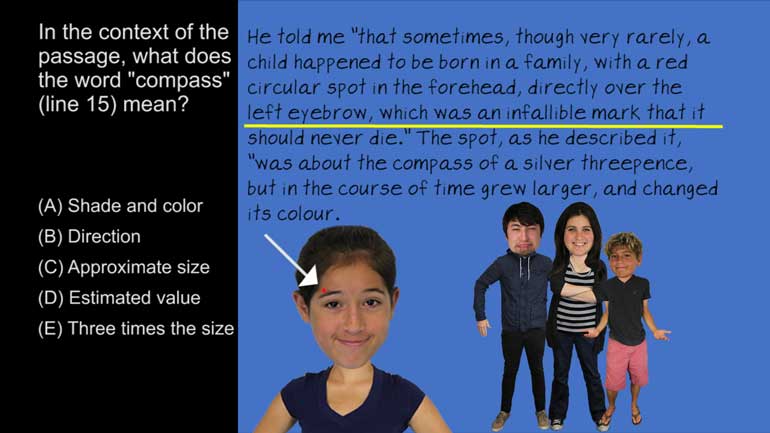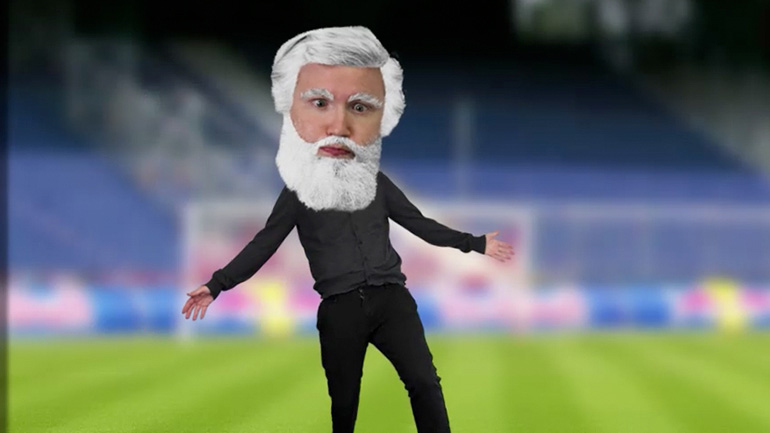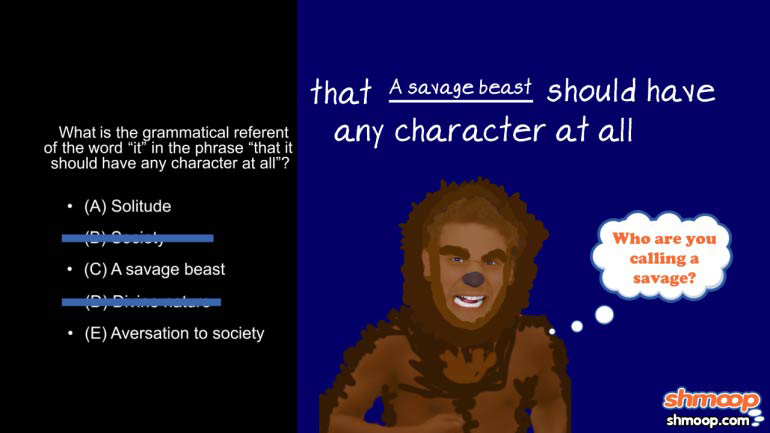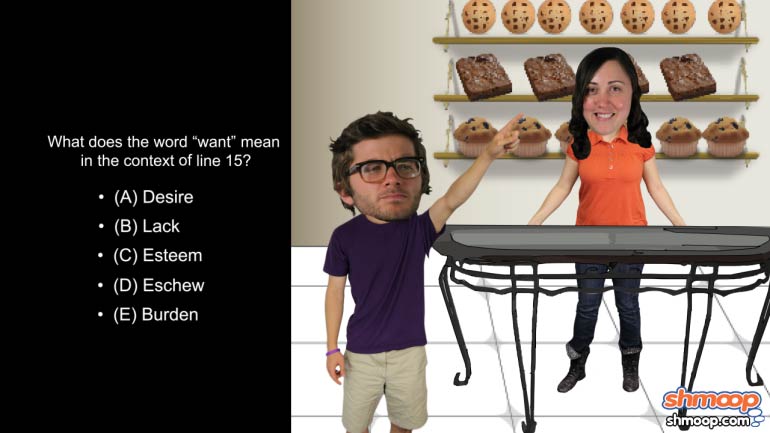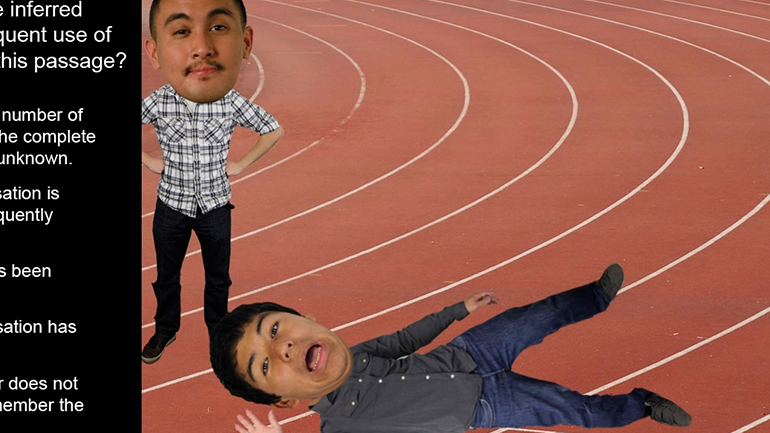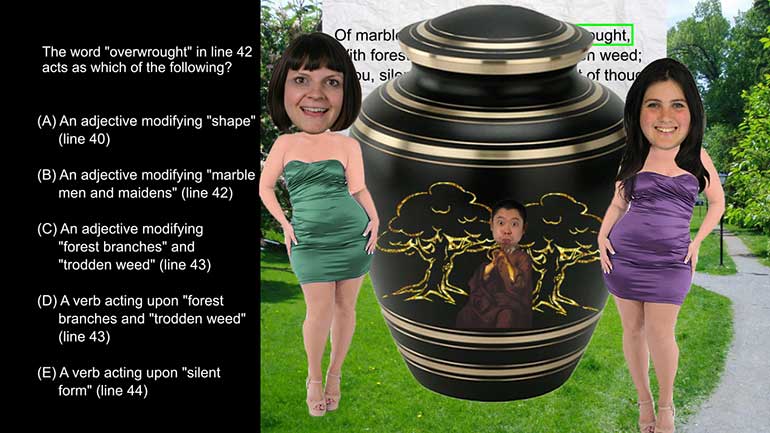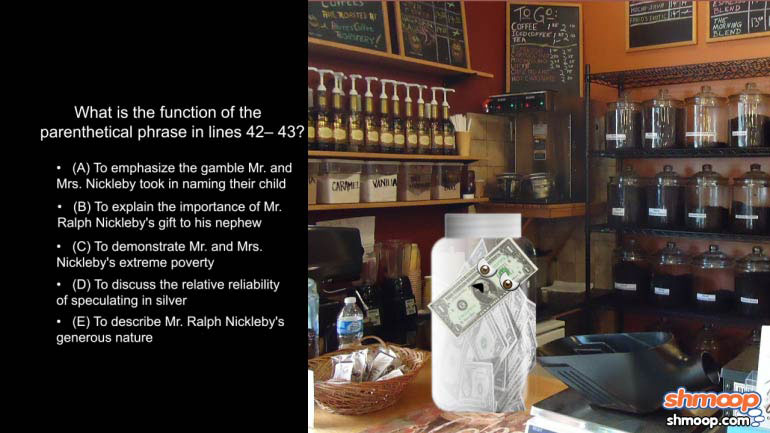ShmoopTube
Where Monty Python meets your 10th grade teacher.
Search Thousands of Shmoop Videos
Diction and Syntax Videos 11 videos
AP English Literature and Composition 1.3 Passage Drill 1. In the context of the passage, what does the word "compass" in line 15 mean?
AP English Literature and Composition 1.6 Passage Drill 1. To what idea does the phrase "my opinion" in line 49 refer?
AP English Literature and Composition 1.10 Passage Drill 1. The speaker's diction in this passage serves to characterize him as which of the f...
AP English Literature and Composition 1.6 Passage Drill 7 193 Views
Share It!
Description:
AP English Literature and Composition 1.6 Passage Drill 7. What is the function of the parenthetical phrase in lines 42 through 43?
Transcript
- 00:04
Here's your shmoop du jour...
- 00:06
You're probably getting that itch to hit the pause button again, so you can review the
- 00:09
passage, huh? Yeah, we're basically mind-readers.
- 00:33
What is the function of the parenthetical phrase in lines 42 through 43?
- 00:38
And here are the potential answers...
Full Transcript
- 00:44
Okay, so this question wants us to look at the parenthetical phrase in lines 42 through 43:
- 00:50
That's the stuff between the parentheses.
- 00:53
and determine why it's there.
- 00:55
Other than, you know, to meet Dickens' desired word count. He must have had his publisher
- 00:59
breathing down his neck...
- 01:02
Here are lines 42 through 43:
- 01:04
"As the deceased had taken no further notice of his nephew in his lifetime, than sending
- 01:09
to his eldest boy (who had been christened after him, on desperate speculation) a silver
- 01:16
spoon in a morocco case."
- 01:18
So, what are we talking about here?
- 01:20
"Christened after him," meaning that his eldest boy was named after him.
- 01:25
"On desperate speculation"
- 01:28
Well, speculation can mean a few different things, but in this case we're talking about monetary speculation.
- 01:36
In other words, the boy was named after a wealthy relative in hopes that relative would
- 01:41
appreciate the gesture so much, that he might throw a few hundred pounds their way.
- 01:51
Okay, now which answer choice says as much?
- 01:54
The silver spoon is nice, but doesn't do you much good if you have nothing to put on it.
- 01:59
So B is no good.
- 02:00
The Nickleby's might be poor, but that isn't what this parenthetical is about, so we can nix C.
- 02:06
There's no mention of silver, so D is an easy out,
- 02:09
nor of Ralph Nickleby's generous nature. E is out, as well.
- 02:13
Which leaves A: "to emphasize the gamble Mr. and Mrs. Nickleby took in naming their child."
- 02:19
Well, sure. They named him purely on the off-chance that Uncle Moneybags would feel so honored
- 02:24
he'd start emptying his money bags.
- 02:31
Probably not the best reason for settling on a baby name. Although, if there are any
- 02:35
Shmoop Smiths being born out there, we'd be mighty flattered.
Related Videos
AP English Literature and Composition 1.2 Passage Drill 4. As which of the following is the object being personified?
AP English Literature and Composition 1.4 Passage Drill 3. How is Burne's view of pacifism best characterized in lines 57 through 67?
AP English Literature and Composition 1.6 Passage Drill 5. Death is primarily characterized as what?
AP English Literature and Composition 1.7 Passage Drill 5. Which line indicates the turn or shift in this poem?
AP English Literature and Composition 1.9 Passage Drill 4. Lines 32-34 are best understood to mean what?
